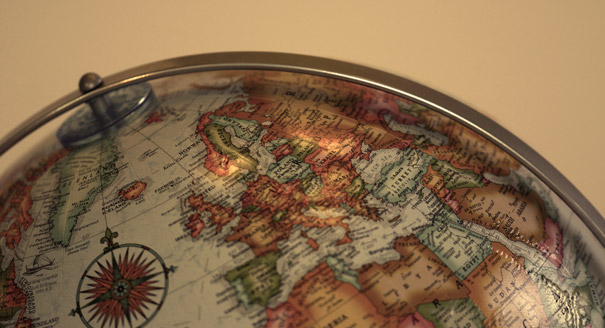What if the future of the European project were foreign policy? What if the primary driver for integration were not peace at home but peace abroad, with the understanding that you can’t have one without the other? What if the hottest items on the EU’s agenda were diplomacy, security and defense, geopolitics, and strategy?
The hope that a real Common Foreign and Security Policy could be Europe’s next big thing is at least twenty years old, and it has often disappointed. But let’s assume for a moment that it would happen, and that external pressure would create a major integrationist impulse, resulting in a “single voice”: united diplomatic action and maybe even a European army.
What kind of Europe would emerge? Here are a few speculations.
First, the EU, for the first time in its history, could act as the physical protector of its citizens. Keeping people safe is still the most prominent and essential function of a state, and contributes enormously to national identity. If Europe assumed responsibility for external security, this would help greatly in building the ever-elusive “European identity” that has been evoked in countless speeches and articles. Its effects on the internal mindset in Europe would be profound.
Second, the EU would need to fill the democratic deficit more urgently than ever. Sovereignty transfers in the field of foreign and security policy cut to the core of what constitutes a nation-state. Consequently, these transfers require not only treaty changes, but a much more direct source of legitimacy from the European demos.
It is impossible to have substantial integration in the realm of foreign affairs without building a pan-European democracy of some sort. Naturally, this would create intense political conflict inside the EU. More unified external action would come at the price of more confrontation at home.
Third, European publics and elites alike could no longer ignore the importance of military power for successful diplomacy. So far, the world has become used to the EU’s rather limited approach of “foreign policy by project management.” That makes the EU the biggest donor in many fields but significantly limits its political clout. Of a unified European foreign policy, much more would be asked.
European leaders and diplomats would also discover how incomplete their toolbox was without the ability, say, to issue security guarantees as a means to influence friends and adversaries. A more unified EU would be asked to be a key guarantor of the liberal world order that is at the core of a stable and economically thriving world. Without military muscle, the EU would be unable to meet that demand.
Fourth, a united, more relevant EU foreign policy would attract more and better political talent. Today, the smartest and most ambitious young European politicians go into domestic affairs, as that is where political careers are made. This limits the quality and depth of strategic thinking in the EU. A more unified EU foreign policy would have a profound impact on the intellectual landscape and the nature of the foreign policy discourse.
Fifth, the nations of Europe would not only have to share more sovereignty, they would also have to define it differently. Currently, sovereignty is still understood as the ability to do something on your own. In a Europe with a more integrated foreign policy, sovereignty would be the ability to contribute something meaningful to the common cause.
A nation’s pride and standing would still depend on its resourcefulness and achievement. But this achievement would also include the ability and willingness to serve the shared purpose. The entire concept of what makes a nation great would be more multilayered than it is now.
Sixth, the European External Action Service (EEAS) would either be massively expanded or dissolved. The current situation—in which the EU’s diplomatic arm is cut off from all operational budgets and has very little to do with the truly powerful external wings of the European Commission (trade, development cooperation, neighborhood, enlargement, etc.)—would quickly come to an end.
Either the EEAS would be reintegrated into the Commission to form an integrated tool for all external action (the pre–Lisbon Treaty model, which served the EU well). Or the externally relevant parts of the Commission would be integrated into the EEAS.
Finally, the position of EU high representative for foreign affairs and security policy would become a truly powerful one. Choosing who to put into this position would be a crucial political question, not a tertiary consideration, as is currently the case.
In sum, the real integration of EU foreign policy would unleash enormous political forces, which would change the EU’s political landscape beyond recognition. This potential for real change constitutes both the biggest obstacle to a more united foreign policy—because the member states fear the consequences—and the last best hope for significant integration.
The question is how much external pressure will be needed as a motivator. Intrinsic motivation, it seems, is at an all-time low today.






